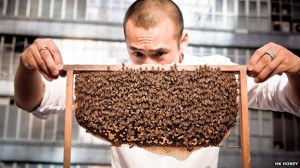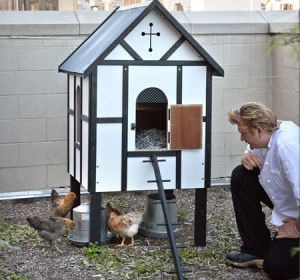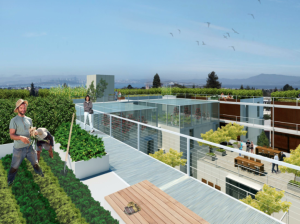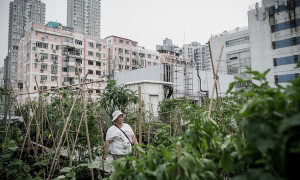by PETER SHADBOLT, BBC News, April 2, 2014

Michael Leung’s honey commands a premium price
Photo: HK Honey
Source: www.bbc.com/news
Under eerie blue lights designed to simulate the ocean depths, hundreds of fish swim serenely through the bubbling waters of their circular tanks, 15 floors up in the sky.
There are 11 plastic tanks in total, holding a combined 80,000 litres of salt water.
They are full of grouper, a white-fleshed fish, which are all destined to end up on the plates of restaurant-goers across Hong Kong.
This is the scene at Oceanethix, one of the numerous so-called “vertical fish farms” in the special administrative region, which have become a key fixture of its supply chain.
For while most fish farms around the world are at sea, or at least, land level, in Hong Kong it is more often a necessity to put them many floors up in tall buildings.
This is because as one of the most densely populated places in the world, there is simply very little spare space. So fish farms have to fit in where they can.
For the small firms that dominate the industry, it is worth the effort, as Hong Kong has an insatiable appetite for fish and seafood. It consumes more than 70kg (11 stone) per capita every year, 10 times more than in the US.


